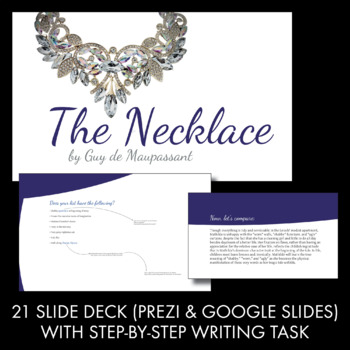
Forestier reveal that the necklace Mathilde lost was a fake.

It looks like the ending will leave us feeling resolved and optimistic, even if it's not exactly a "happy" one. Forestier on the street, all she has to do is come clean about substituting the necklace, and that whole episode of her life will be over. Mathilde's experience of suffering appears to have helped her grow, and it's given her something to be proud of. It seems sad, and maybe a little pointless, that her whole life is ruined on account of one little necklace, but what else can she do? She's got to make up for the valuable thing she lost.Īnd so her ten years of hard work, her poverty seems kind of necessary: it has a purpose, and we admire the way she slogs through it all. Mathilde's problem is that she accidentally loses something expensive and has to replace it.

Let's have a closer look to see how the twist plays out in the story. Somehow, that bit of information radically changes the meaning of what came before it.

The short answer: the twist ending depends upon suddenly revealing some bit of completely unexpected but hugely important information right at the close of the story. But just how does it work? What makes it a "twist ending"? The ending to "The Necklace" may just be the mother of all twist endings.


 0 kommentar(er)
0 kommentar(er)
